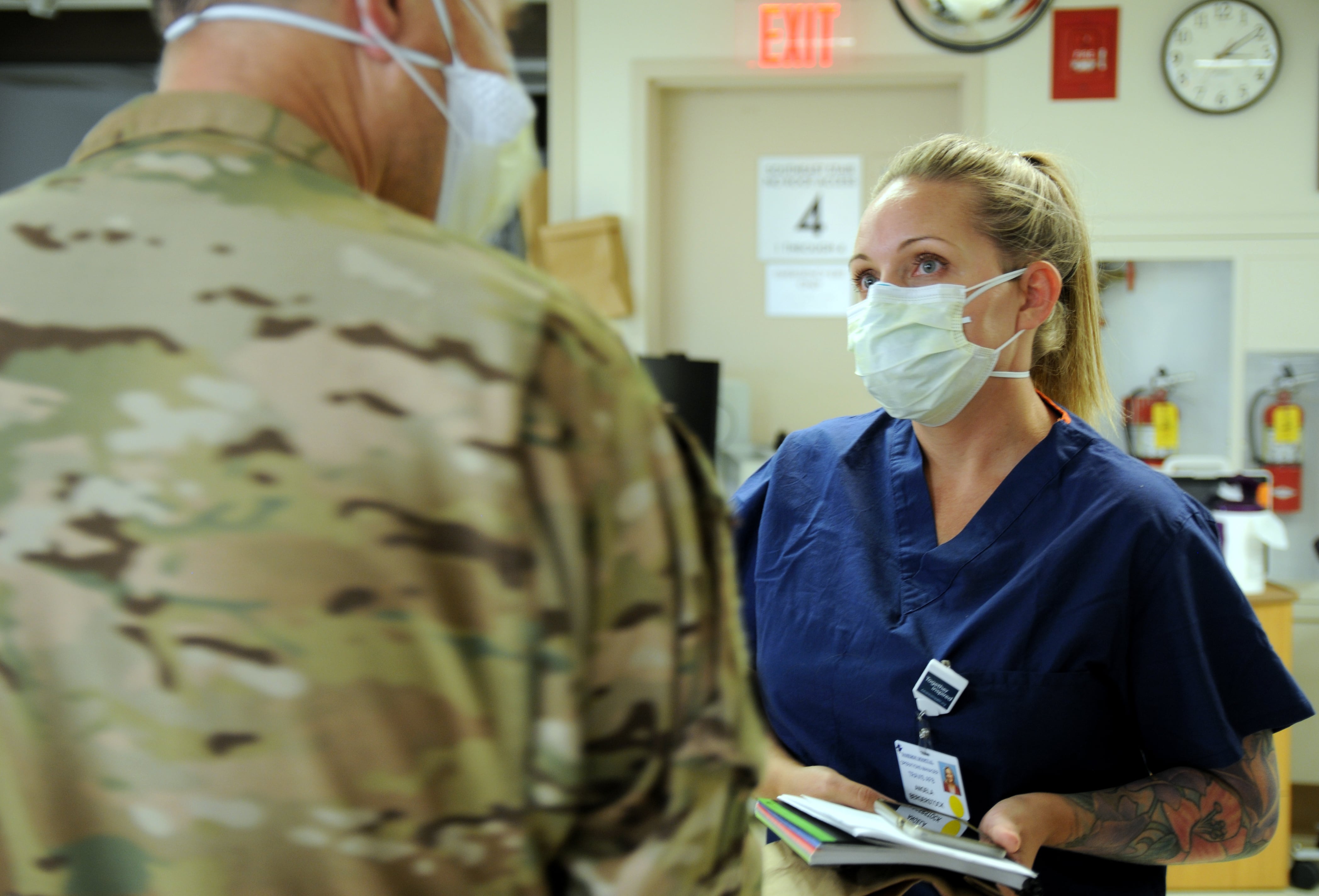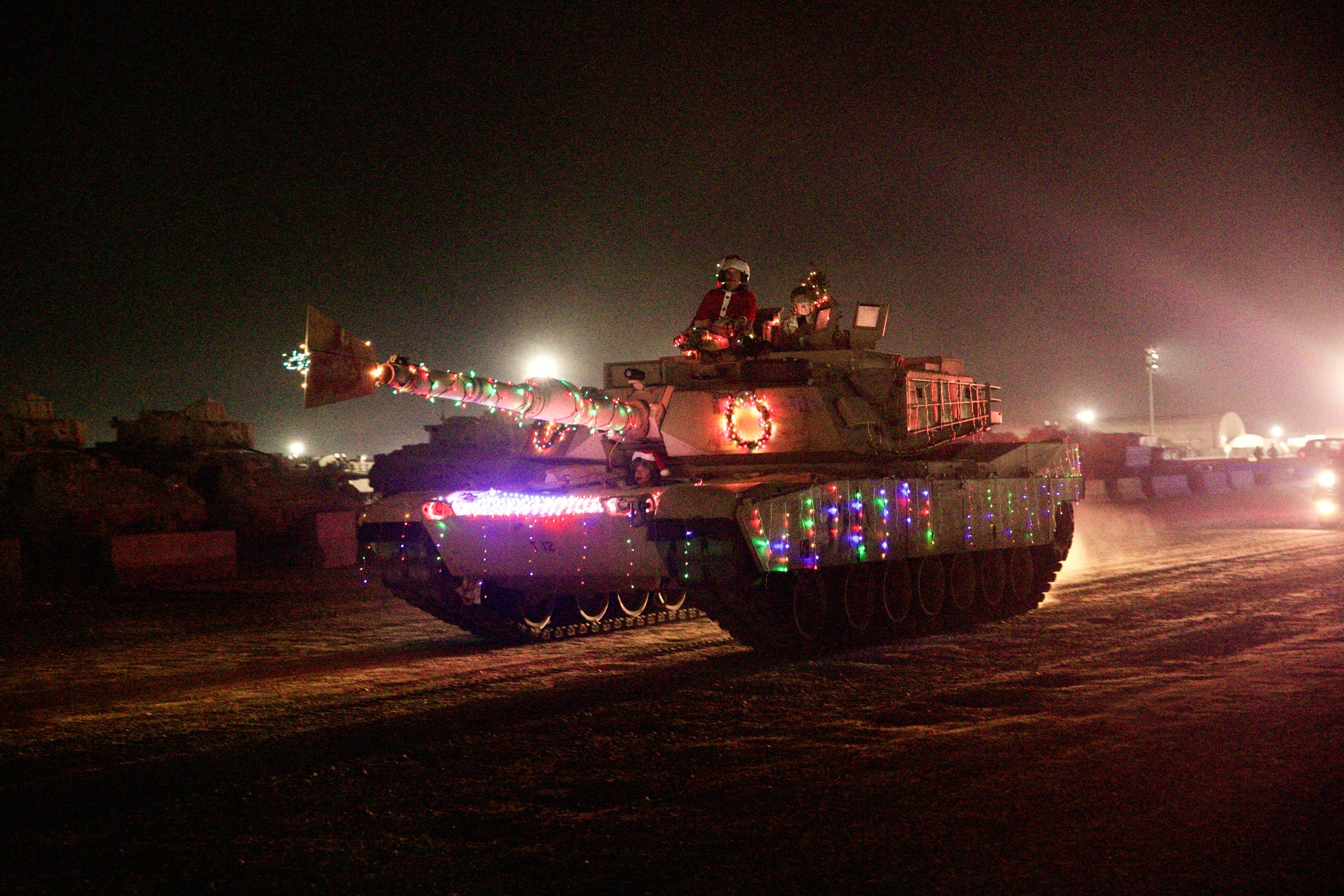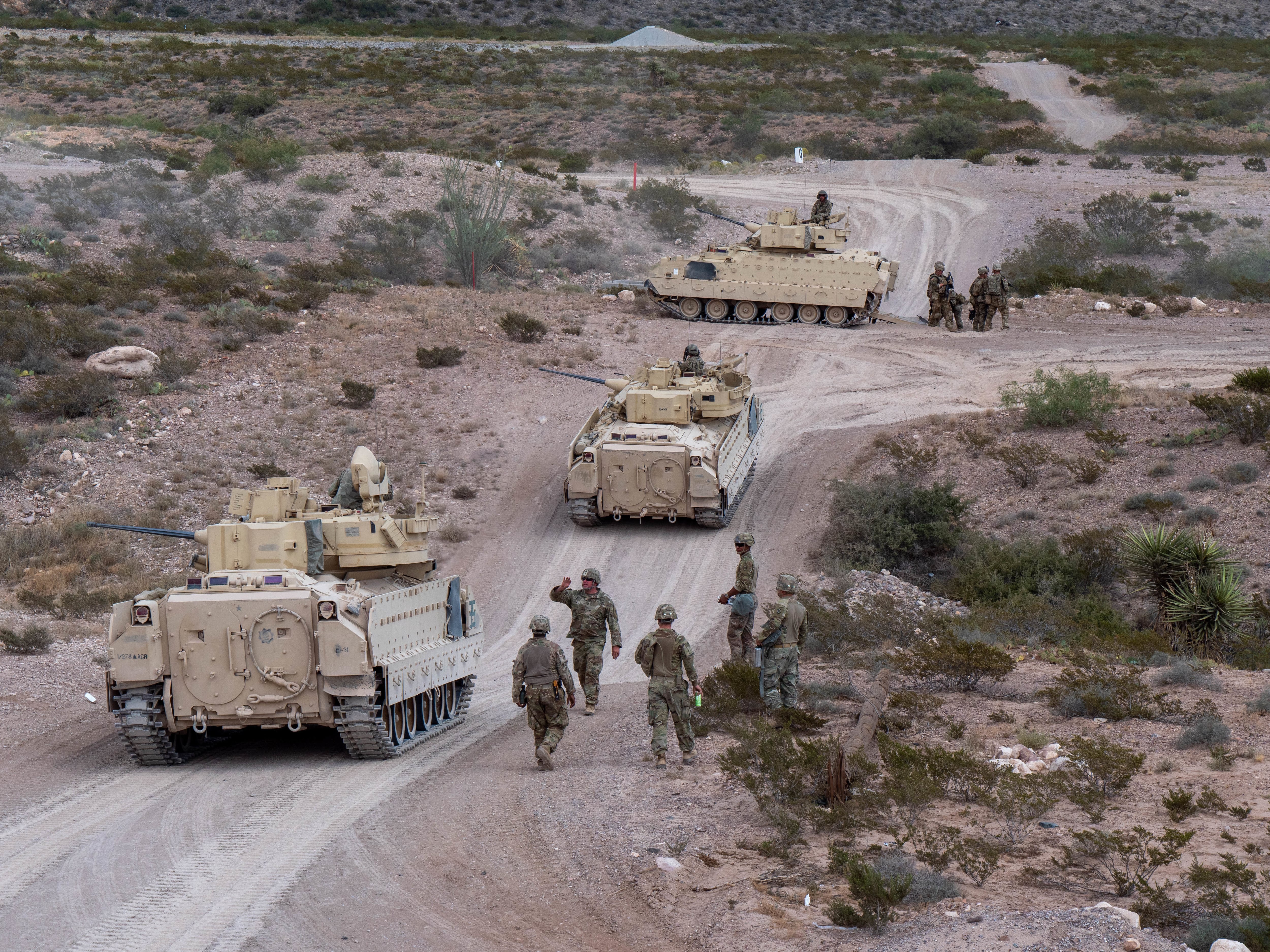Earthquakes, a hurricane, floods, locusts, pesky Russians, an assassination, drone-dropped mortars, oil field attacks and landmines were a few of the features of an Army National Guard brigade’s nearly year-long deployment to U.S. Central Command for most of 2020.
Oh, and a historic global pandemic.
It was a deployment of “biblical proportions,” said 30th Armored Brigade Combat Team commander Col. Charles Morrison.
“Everything but frogs falling from the sky happened to us during this rotation,” said Maj. Ben Bagwell, then-brigade operations officer.
More than 3,000 soldiers with the 30th ABCT of the North Carolina National Guard deployed from October 2019 to September 2020 in support of both Operation Inherent Resolve and Operation Spartan Shield.
RELATED

The brigade previously conducted combat deployments to Iraq in both 2004 and 2009.
With additional attached units, a total force of 5,000 personnel worked in 11 major areas across the Middle East — from Egypt to Oman.
A battalion’s worth of soldiers from both the Ohio National Guard 1st of the 145th Combined Arms Battalion and 1st of the 34th ABCT joined the 30th ABCT for the deployment, officials said.
Morrison, Bagwell, Lt. Col. Jonathan Hearn and Command Sgt. Maj. Sidney Baker spoke with media on a call Wednesday.
Amid the host of challenges thrown at them, soldiers earned 56 Combat Action Badges and just under 2,000 Army Commendation Medals and Army Achievement Medals with combat “C” device, indicating combat, Hearn said.

The brigade was tasked three years out, back in 2016, with supporting OIR and CENTCOM, working through their standard pre-deployment preparations with the mission of providing a force to deter Iran in the region.
But before the soldiers even completed their training, Hurricane Florence struck two of the three states most brigade members called home — North Carolina and South Carolina — in late 2018.
Some 30th ABCT soldiers also hail from West Virginia, including 1st Troop, 150th Cavalry Regiment.
Called to state activation, many members had just returned from major training events. A short while after conducting hurricane relief, they were headed to the National Training Center at Fort Irwin, California.
While slogging through the challenging training tasks and pre-deployment events at NTC, the strongest earthquake in the region in two decades hit, shaking buildings collapsing some small structures and cracking blacktop roadways.
That was followed by another major earthquake the next day.
Soldiers wrapped up training and began loading equipment for the upcoming deployment, now only a month away.
In three weeks, they had all vehicles fully operational and aboard ships bound for the Persian Gulf.
Things went swimmingly from there. Literally.
In late November, more than 94 million gallons of rain in less than 24 hours drowned Camp Buehring, Kuwait, where a good chunk of the soldiers called home base, said Bagwell.
The storm ripped the roof off of the camp’s education center, flooded out the barracks leaving pools of water 3- to 4-feet deep, he said.
One unit, dispatched to Saudi Arabia, even had to deal with “a plague of locusts,” Bagwell added.
And as if Mother Nature’s ongoing pounding of the brigade weren’t enough, they had plenty of manmade problems to confront.
The brigade had units in Egypt, Lebanon, Jordan, Syria, Iraq, Kuwait, Saudi Arabia, Bahrain, Qatar, United Arab Emirates and Oman at various points.

Some of the highlights included an early reaction force to Iraq following the U.S. strike on Jan. 3, 2020, which killed Iranian Maj. Gen. Qasem Soleimani while he was in the country.
The killing spurred Iranian-launched missile attacks into Iraq and greater unrest across the region for a short period.
But the 30th ABCT was ready.
“We had tanks on the tarmac loaded to go into Iraq,” Bagwell said.
By March 2020, COVID-19 arrived in the region and 30th ABCT soldiers were setting up and running two-week quarantine spots for anyone coming in or out of Camp Arifjan, Iraq, Bagwell said.
And then there were the Russians.
On one memorable incident, Bagwell said soldiers from the 1st Troop 150th Cavalry Regiment, out of West Virginia, were running ground logistics operations, escorting a supply convoy, in Syria when a driver spotted obstructions in the road. They turned out to be old landmines laid out on the surface, not buried.
Those speed bumps slowed down traffic a bit and halted a Russian military convoy as well. There was some finger-pointing that each side was trying to “impede” the other, but tensions subsided as the two great powers went their separate ways.
On another convoy movement, an ISIS-controlled drone dropped a mortar round near the U.S. convoy, Bagwell said. Luckily, it wasn’t close enough to cause real damage. That was nearly the extent of the brigade’s ISIS interaction.
When Houthi rebels fired missiles at Saudi Arabian oil facilities from Yemen, soldiers were sent to guard Patriot missile batteries that had been delivered to protect the ally’s assets.
But by this past September, the brigade had returned home. Now, they are re-staffing and re-training their unit, said Col. Morrison.
“We’re in a reset, very excited to start a new training cycle,” he said.
The armored unit is set to field upgraded M1A1 Abrams tanks and Bradley Fighting Vehicles between 2024 and 2025, he said.
Todd South has written about crime, courts, government and the military for multiple publications since 2004 and was named a 2014 Pulitzer finalist for a co-written project on witness intimidation. Todd is a Marine veteran of the Iraq War.




